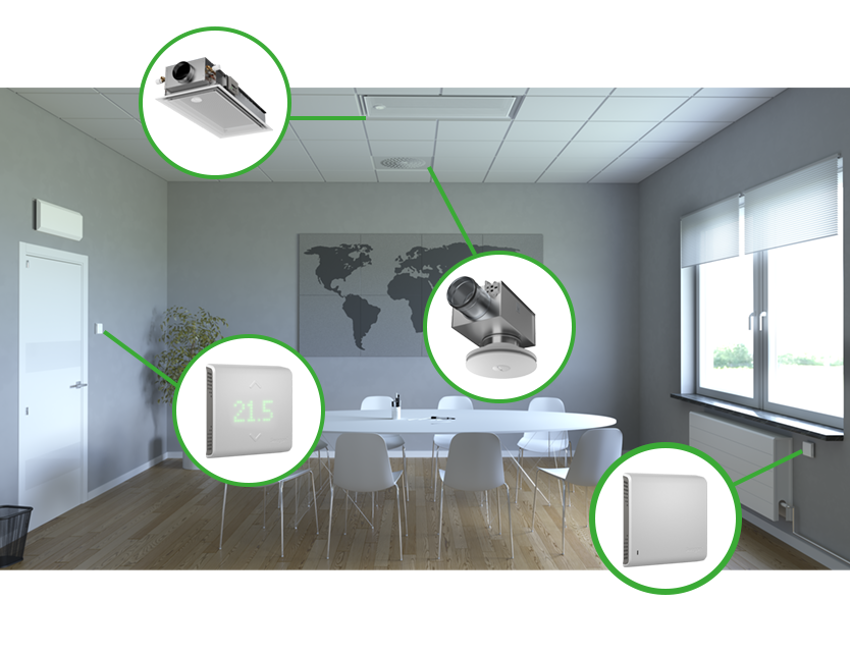
Big data - significant potential
Without data we cannot control or measure.
Thus data forms the basis for control and decisions in smart buildings.
Smart buildings can appear to be a modern concept, but its origins actually go quite far back in history. The first step towards an automated climate system came as early as the 17th century with Cornelis Drebbel and his mercury thermostat that could automatically keep a room at a constant temperature.*
The technology for building automation and smart buildings has since this skyrocketed
and we now speak about the “fourth industrial revolution”.
*https://acssmartbuildings.com/a-brief-history-of-smart-buildings/
World Economic Forum describes the fourth industrial revolution
https://www.weforum.org/agenda/2017/06/internet-of-things-will-power-the-fourth-industrial-revolution/
You can be secure
Connected systems for property automation, for example, indoor climate and ventilation control, create new opportunities such as easy configuration and monitoring. However, in recent years attacks on connected systems have become more common.
-> Read our blog about how you secure your building management system
Do you want to read more about our security recommendations for connected control equipment? Take a look at our Security recommendations for COMPACT, GOLD, SuperWISE I and II.


Smart buildings and virtual power plants - a future prospect
A significant amount of the world’s energy use goes to HVAC, which of course means improvements in energy efficiency will be of interest even in the future.
The large energy consumption from buildings can also be seen as a possibility. How can energy consumption be a possibility? As the consumed energy in buildings can to some extent be controlled in time, buildings fit well as a part of what is known as virtual power plants.
Virtual power plants consist of both energy producers and energy consumers that interact to maintain a balance in the electricity supply network. This is important with newer and more environmentally friendly energy sources that vary over time, for example, sun and wind. In order to achieve improvements in energy efficiency and be a part of virtual power plants, high demands are made on communication possibilities and connection from indoor climate systems.
It then becomes the intelligent choice to invest in smart and connectable indoor climate systems with high communication possibilities – both for the environment and the future.
Swegon’s nerve fibres in smart building
WISE is our nerve fibres in the smart building. A complete system comprising all the products you need for your indoor climate, including a smart control system and an intuitive user interface.
The system collects among others operating information, data regarding quality of the indoor climate (temperature VOC, CO2) and occupancy.


